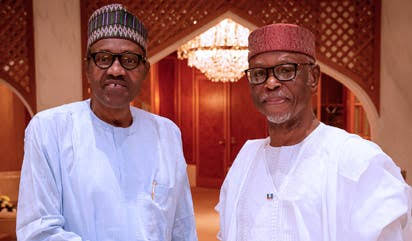“We are in charge today, a progressive government, a progressive regime and I think it is proper that we show to the nation that when the people want some degree of change we should be responsive to it, we should address it. Compromises have to be made, there’s no question about that. The report itself is not final. It still has to go through the litmus test of compromises. The ideas of people from different parts of the country will be different up to the extent they want to go with the proposals in the document, but it is necessary. It is vital, it is in fact, mandatory in the interest of the survival of our nation, that these issues be addressed. We cannot continue to allow the subject to become something that threatens our nation at any turn.
On the need to rebuild the APC from bottom to the top approach, Chief Oyegun warned against bending the party’s rules.
“You can stretch the rule. Never break it. Secondly, it is very fundamental that in all we do, the ranks-and-file members of the party and of parties generally, are able to see that even when they lose, they have been treated fairly, they have been treated decently because what I observed, I was made the Chairman of the reconciliation group in the South-south and in every single case, you have a situation where during elections, the civil war within the party alone, makes it impossible to think of it. Why is it civil war? Civil war because critical stakeholders in the party see that they have not been fairly, justly treated.”
Bagudu said: “The party is not shy to acknowledge that our constitution is not perfect and again under John Oyegun, the El-Rufai Committee on True Federalism was created to look at those issues that we should do better about. APC belief is, let us amend constitution because society is dynamic not because somebody has been wronged and cheated. If that is the basis for correction, then the agitation will never stop but if it’s based on let us make it better, I believe the proposal which has been submitted to the National Assembly will help to produce amended Constitution that will meet most of the aspirations.”
In her goodwill message, the mother of day and a former Nigerian envoy, Fatima Balla Abubakar, who said APC’s popularity can be attributed, significantly, to President Muhammadu Buhari, called on the government to quickly address the growing social unrest for the party to regain confidence.
“As a government in power, APC needs to start thinking and doing things differently so that it can begin to deploy more people oriented policies to boost socio-economic growth and development and to provide more relief to the people.
“The present situation in the country calls for more robust intellectual and policy oriented discussions and engagements by our party. We must engage with a spirit of transparency and inclusiveness. We must create a big tent where different views and positions are discussed without bitterness.”
While appreciating the APC government for the opportunity to serve, the author of the book, Salihu Moh. Lukman, said APC leaders have been working to address some of the foundational issues of democracy and that the book “is a contribution to support initiatives of our leaders. All leaders and members of APC are therefore invited to engage challenges facing the party, government and the nation with every confidence and belief in the capacity of Nigerians to support every patriotic and nationalistic initiative. We must never allow the loud noise of selfish political entrepreneurs to hoodwink Nigerians into believing that our party and governments produced by our party have failed.
“It will be a mockery of our political history to allow any narrative in the public space, which suggest that comparative to previous administrations since 1999, APC controlled administration led by President Muhammadu Buhari has failed. Like President Muhammadu Buhari himself has acknowledged, there are no doubt, challenges facing the country, but no administration since 1999 has succeeded in completing projects, whether initiated by previous or current governments.”



